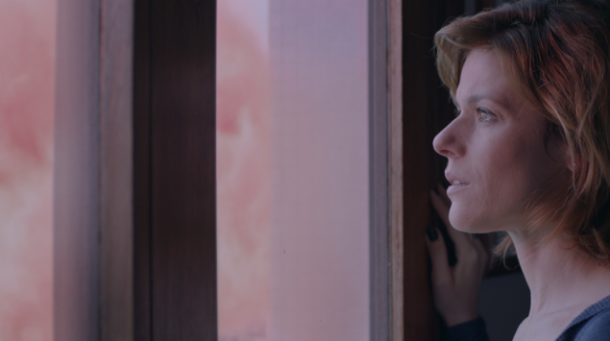IuIi Gerbase’s first feature film is gaining traction…
Paris-based MPM Premium has picked up the Brazilian filmmaker’s The Pink Cloud, a banner title that’s part of a slate of first features from a new generation of young female Brazilian directors.
Gerbase’s sci-fi thriller was shot in 2019, but was filmed while still anticipating the COVID-19 lockdown.
Produced by Patricia Barbieri, who also backed Gerbase’s latest short, the coming-of-age adventure thriller The Stone,” Gerbase’s first feature begins with a mysterious pink cloud appearing across the globe. It proves deadly, killing anybody who remains outside in 10 seconds, forcing everybody to stay home.
Having met the night before, Giovana (Renata de Lelis) and Yago (Eduardo Mendonça) try to invent themselves as a couple as the days of lockdown become years.
Yago stays positive, adapts, and wants to have children, but Giovana feels trapped by Yago’s traditionalist agenda and by the cloud.
In a director’s statement, Gerbase said she wasn’t interested in a typical post-apocalypse story where the battle for survival is more physical and practical. Rather, she wanted “to explore the different emotional paths of the two characters with very different visions of what freedom and happiness are.” Giovana, in particular, has “a strong internal feminist battle with the cloud.”
“From the first minutes of the film, The Pink Cloud struck me with its colorful cinematography and thrilling tension,” said Quentin Worthington, head of sales at MPM Premium.
He added: “Just like Pedro Almodóvar declared that cinema is the antidote to lockdown, The Pink Cloud could be that antidote that will help us process our emotions and anxieties after a year of a global lockdown.”
“The Pink Cloud” forms part of MPM Premium’s push into emerging talent via its New Visions auteur label.
Also part of Brazil’s regional movie build, now often challenged by the decimation of federal film funds by Jair Bolsonaro’s government, The Pink Cloud is produced by Gerbase’s Porto Alegre-based label Prana Filmes, and supported by the Fundo Sectorial Audiovisual (FSA) film fund, managed by state agency Ancine, drivers of a once vibrant Brazilian film scene.
The film will hit the festival circuit in 2021.


